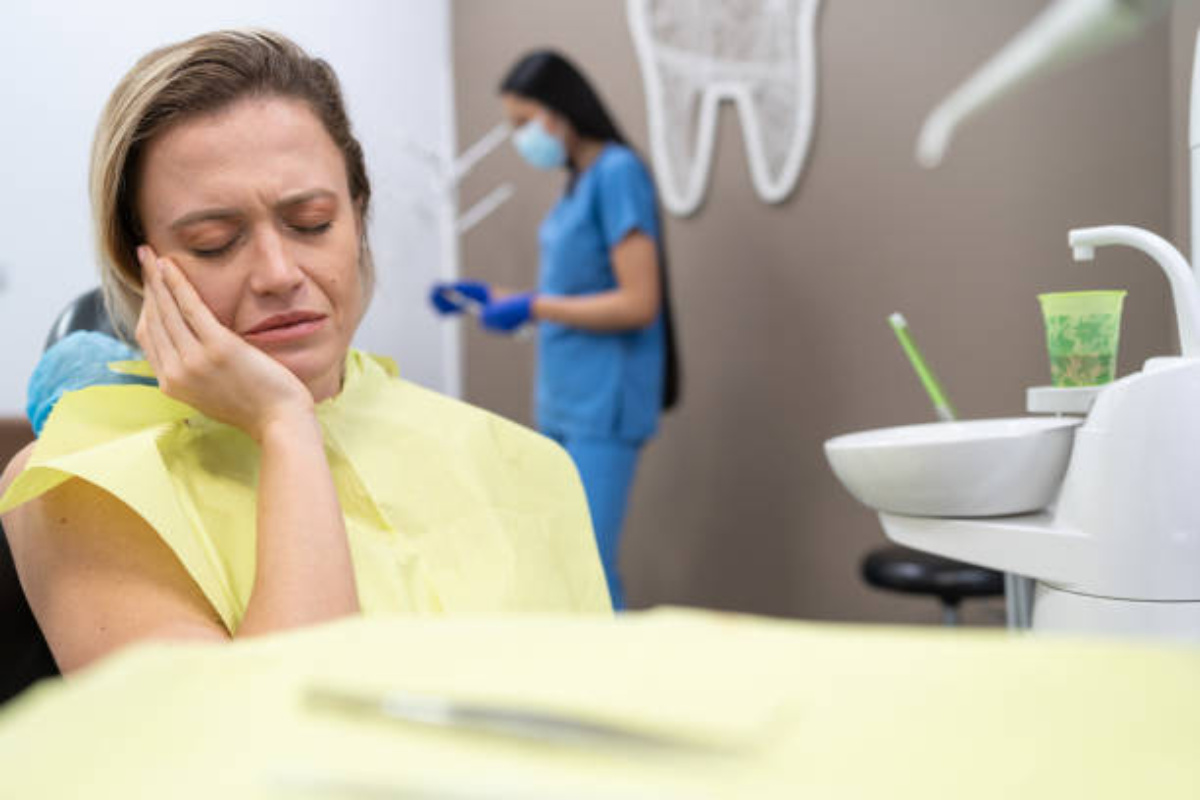
It can be difficult to determine whether to wait for your regular appointment or to seek help right away during a dental emergency. It can be confusing to determine if the pain in your mouth is serious. If you are in pain or have some bleeding or swelling, it is best to seek urgent dental care in Richmond—this may help to prevent the issue from getting worse, thereby protecting your oral health. It is important to get urgent dental care fast, as it can help to save your teeth, stop pain, and avoid serious complications.
How Do You Know If It is An Emergency?
You may be looking for a Richmond dentist near you, and you may be asking yourself the following questions: Is this a dental emergency?” If you are not sure whether it requires a visit to your Richmond dentist fast, it is an emergency. In general, dental emergencies can include severe pain, damage to teeth, and/or infection, where delaying treatment may have negative, long-term consequences. The sooner you act, the better your chances for a recovery!
Let’s look at the five most common indicators that you may have a dental emergency.
1. Severe Toothache That Won’t Go Away
A toothache that continues to throb is more than annoying; it may also indicate the presence of an underlying problem, such as a deep cavity, abscess or infection. When pain persists after taking over-the-counter pain medicine, this is one of the most common signs of a dental emergency. If you are dealing with swelling and/or fever, or if the pain gets bad enough to spread to other areas of your body, you do not want to wait to see a dentist in Richmond. If you are unable to really sleep, eat or focus because of the pain in your mouth, it is time to see a dentist!
2. Broken, Chipped, or Knocked-Out Tooth
Whether from a fall, sports injury, or biting something hard, a broken tooth needs urgent care. Even a chip can expose inner layers to bacteria. If a tooth is knocked out, place it back in the socket or milk and seek emergency dental care quickly to improve the chance of saving it.
3. Bleeding that Does Not Stop in the Mouth
Minor bleeding from brushing or flossing is often gum irritation, but heavy, persistent bleeding from injury may signal a serious issue like periodontal disease or trauma. If it doesn’t stop after 10–15 minutes of pressure, seek urgent care.
4. Swelling of the Face or Jaw
Facial swelling often signals infection, such as an abscessed tooth, where bacteria cause pus buildup. If not treated, it can invade other tissues and potentially become life-threatening. If you are swollen, running a fever, and having difficulty breathing or swallowing, it is considered what counts as a dental emergency.
5. Soft tissue injury in the mouth
Cuts, ripping, or punctures of your lips, tongue, or cheeks may lead to severe bleeding, and you may require additional treatment or stitches. Some injuries will heal rapidly; however, others will require care or, worse, can become infected or keep causing pain. Do not attempt to treat yourself; consult a dentist for examination of the area to ensure no deep injury was done.
Common Questions about Dental Emergencies
- Should I go to the ER for tooth pain?
Most dental pain is best treated by a dentist, not the ER. However, severe swelling blocking your airway, uncontrolled bleeding, or serious dental trauma requires an ER visit. Hospitals lack dental equipment and can only provide temporary relief, such as pain medicine or antibiotics, before referring you to a dentist.
- Do I need emergency dental care for a lost filling or crown?
While generally a lost filling or crown is not an immediate danger, it can leave sensitive parts of your tooth exposed allowing for pain or further damage. If you have difficulty eating or if discomfort is an issue, arrange for an appointment as soon as possible.
- What if I break my braces or dental appliance?
If the broken brackets or wires are cutting the inside of your mouth and you are experiencing injury, then contact your dentist or orthodontist for further advice. Use orthodontic wax to cover any sharp edges until you are seen.
- Can I treat a dental emergency at home?
Using an over-the-counter medicine or a cold compress can help manage pain and swelling temporarily; however, professional care will be needed to fully solve the problem. It is essential to remember that home remedies only help temporarily until you get back to your dentist.
How to Respond to a Dental Emergency
- Stay calm. Panic can create additional problems.
- Act quickly. The sooner you can get help, the better your chances of a successful outcome.
- Protect the tooth or area. Avoid unnecessary touching of damaged teeth or wounds.
- Follow your dentist’s instructions. They may provide you with instructions on things you can do before arriving.
Your Smile Deserves Immediate Attention
Dental problems hardly ever get better without intervention, and delaying treatment can easily change a minor problem into a far bigger problem. Treat pain, injury, and swelling as soon as possible to have your best chance of preserving your teeth and reducing complications. Keep your dentist’s phone number handy in case of an emergency.
Clear Dental—Here When You Need Emergency Care
Clear Dental knows that emergencies tend to occur when you don’t expect them, and you don’t have the luxury of waiting for treatment. Along with speedy treatment, our staff is experienced, kind, and empathetic. If you have the unfortunate experience of losing a tooth or are suffering from pain, we will guide you through your treatment. Don’t be shocked by a dental emergency. Contact us at Clear Dental today, and we can be your partner in fast and reliable care when time is of the essence. Your smile is valuable, even more so when the unexpected happens in life.
